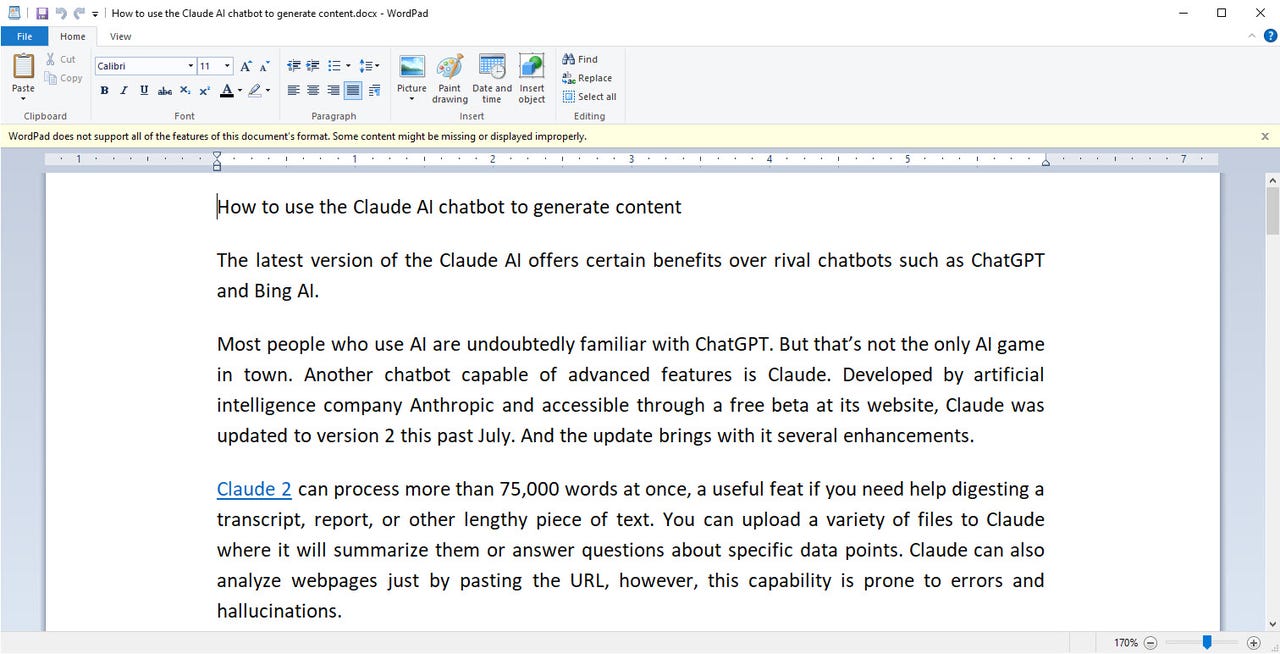Microsoft is retiring WordPad after almost 30 years on the job

Those of you who still use WordPad in Windows will at some point have to find another program to open and read your favorite documents. In the latest edition of its list of deprecated Windows features, Microsoft announced that WordPad is no longer being updated and will be removed in a future update of Windows.
Also: The best Windows laptops: Expert tested and reviewed
Microsoft didn't reveal when WordPad will be retired, so we don't know how much life the app has left. Neither did Microsoft explain why WordPad is going away. But the company did advise people to turn to Microsoft Word to view rich text documents such as .DOC and .RTF files and to Notepad to read plain TXT files.
WordPad was introduced with Windows 95 in 1995 as a more capable alternative to the barebones Notepad app. Included in every version of Windows since then, the program has gained certain enhancements over the years, including support for Microsoft Word documents and the Ribbon interface.
Though WordPad can read basic Word documents, it can't handle more advanced formatting, layouts, and content. As such, its usefulness to Microsoft Word users has always been limited.
Plus, WordPad lacks certain features found in most true word processors, including a spell checker, table and column tools, page numbers, headers and footers, and support for charts and graphs.
Also: My 7 favorite Microsoft PowerToys: Utilities every Windows PC user should try
Given its limitations, why has WordPad stuck around this long? Well, it's better than Notepad and it's freely accessible in Windows. But over time, other more effective options have popped up.
If you simply need to view a Word document, a variety of third-party file viewers and readers are available. If you want to create and edit a Word document and don't have the paid flavor of Word, you can always turn to the free online edition as well as to Google Docs.
